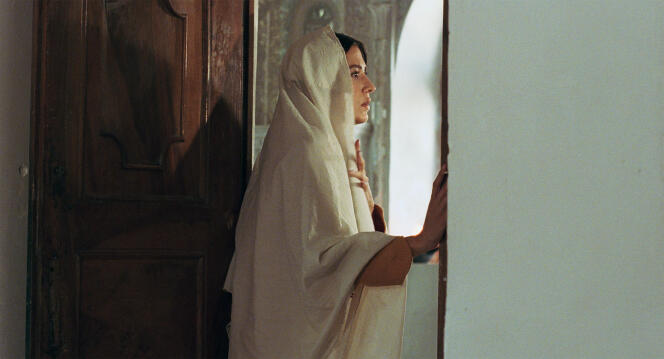THE “WORLD’S” OPINION – MASTERPIECE
The shock produced upon its release, in August 2021, by The Wind Chessboard (1976), a cursed Iranian film, banned and then miraculously exhumed forty years later, had put a clue to the existence of a first-rate artist who had escaped the net of the cinephile watchdog, Mohammad Reza Aslani. Born in Racht in 1943, trained in the Decorative Arts of Tehran, this avant-garde poet, contemporary of Ahmad Reza Ahmadi (1940-2023) and Forough Farrokhzad (1935-1967), was, like many other scholars of his generation, mixed with cinema, but against the grain.
In addition to experimental production in short formats, which earned him the suspicious label of “intellectual” filmmaker, he was only able to finalize two feature-length fiction films, thirty-two years apart. It is now up to the most recent of them, The Green Flame (2008), to be released in theaters, thanks to a freshly restored copy.
Enigmatic work
Initially envisioned as a reverie around the citadel of Bam, destroyed during an earthquake in 2003, filming, postponed for five years, moved to another fortress near Kerman. In any case, it is in front of its cyclopean enclosure that, at the beginning of the film, a family stops crossing the desert by car and hopes to find something to quench their thirst there. Nardaneh (Mahtab Keramati), removed from the supervision of her parents, slips through the ruins, guided by a prophecy from the depths of the ages announcing her marriage to a dead man.
At the back of a room, under a canopy, she finds an inanimate man, his torso pierced with seven thorns. A grimoire left at his bedside teaches him how to bring him back to life, provided he reads the seven stories its pages contain. Each traces over the centuries how the castle of Kerman was overthrown and conquered, passed from hand to hand. Each is an opportunity to replay in different eras the meeting between the lovers, cast in the shoes of legendary characters.
Instead of the historical drama which would undoubtedly have satisfied the authorities, Mohammad Reza Aslani delivers an enigmatic work, a sumptuous journey through time coupled with a deep meditation on the political history and culture of his country. The filmmaker gives free rein to his poetic inspiration, playing with established categories such as those of the past and the present, the real and the symbolic, to better slide from one to the other and make them permeable. For this, he takes the path of the marvelous tale, and even more collections of tales embedded, in the purest oriental tradition, notably Thousand and one Night.
You have 52.38% of this article left to read. The rest is reserved for subscribers.
